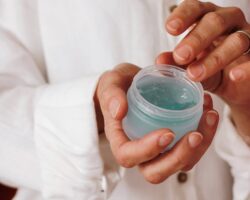
- Introduction
- What are Cosmetic Peptides?
- The Science Behind Cosmetic Peptides
- Benefits of Using Cosmetic Peptides in Skincare
- Popular Cosmetic Peptides in the Market
- How to Incorporate Cosmetic Peptides into Your Skincare Routine
- Potential Side Effects and Precautions
- The Future of Cosmetic Peptides in Skincare
- Beyond Skincare: Other Applications of Cosmetic Peptides
- Conclusion
Introduction
In recent years, the skincare industry has witnessed a remarkable trend – the rise of cosmetic peptides. These small but mighty compounds have revolutionized the way we approach skincare, offering a range of benefits that go beyond traditional skincare methods. In this article, we will delve into the world of cosmetic peptides, exploring their science, benefits, popular variants in the market, and even their potential applications beyond skincare.
What are Cosmetic Peptides?
Cosmetic peptides are short chains of amino acids that play a crucial role in various biological functions of the skin. These peptides act as messengers, signaling cells to perform specific functions such as collagen production, skin repair, and hydration. With advancements in biotechnology, scientists have been able to harness the power of these peptides for skincare purposes, leading to the development of a wide range of peptide-based skincare products.
The Science Behind Cosmetic Peptides
Understanding the science behind cosmetic peptides is key to comprehending their efficacy in skincare. When applied topically, these peptides penetrate the skin’s surface and interact with the cells, triggering specific responses. For example, some peptides stimulate collagen production, promoting skin elasticity and reducing the appearance of fine lines and wrinkles. Others enhance moisture retention, resulting in plump and hydrated skin.
Benefits of Using Cosmetic Peptides in Skincare
One of the primary benefits of incorporating cosmetic peptides into your skincare routine is their ability to target specific concerns. Unlike traditional skincare ingredients that offer generalized benefits, peptides can address specific issues such as firming, brightening, and reducing pigmentation. Additionally, cosmetic peptides have shown promising results in improving the overall texture and tone of the skin, leaving it looking youthful and radiant.
Popular Cosmetic Peptides in the Market
Matrixyl, Argireline, and SYN®-COLL are some of the popular cosmetic peptides that have gained significant attention in the skincare market. Matrixyl is known for its collagen-boosting properties, helping to reduce the appearance of wrinkles and fine lines. Argireline, often referred to as “Botox in a bottle,” works by relaxing facial muscles, thereby reducing the formation of expression lines. SYN®-COLL is renowned for stimulating collagen synthesis, promoting firmer and plumper skin.
How to Incorporate Cosmetic Peptides into Your Skincare Routine
Integrating cosmetic peptides into your skincare routine is relatively simple. Start by selecting products that contain peptides suited to your specific skin concerns. These can include serums, moisturizers, or even targeted treatments. When using peptide-based products, it’s important to follow the instructions provided by the manufacturer and be consistent with your application to maximize their effectiveness.
Potential Side Effects and Precautions
While cosmetic peptides are generally considered safe for most individuals, it’s essential to be aware of potential side effects and take necessary precautions. Some people may experience mild skin irritation or redness initially, especially when using higher concentrations of peptide-based products. It is advisable to perform a patch test before incorporating new products into your routine and consult with a dermatologist if you have any underlying skin conditions or concerns.
The Future of Cosmetic Peptides in Skincare
The future looks promising for cosmetic peptides in the realm of skincare. Ongoing research and advancements in peptide technology are expected to bring forth even more innovative formulations that target specific skin concerns with increased precision. Additionally, the combination of peptides with other potent ingredients may further enhance their efficacy, leading to a new era of personalized skincare solutions.
Beyond Skincare: Other Applications of Cosmetic Peptides
The potential of cosmetic peptides extends beyond skincare. These remarkable compounds have found applications in other fields such as wound healing, hair care, and even pharmaceuticals. Researchers are exploring the diverse possibilities of peptide-based therapies, with the aim of improving overall well-being and addressing various medical conditions.
Conclusion
In conclusion, the emergence of cosmetic peptides has brought about a new era in skincare, offering targeted solutions for a range of skin concerns. Their ability to stimulate collagen production, improve skin texture, and address specific issues has made them a popular choice among skincare enthusiasts. As advancements continue, we can expect even more exciting developments in the world of cosmetic peptides, paving the way for personalized and effective skincare solutions.
